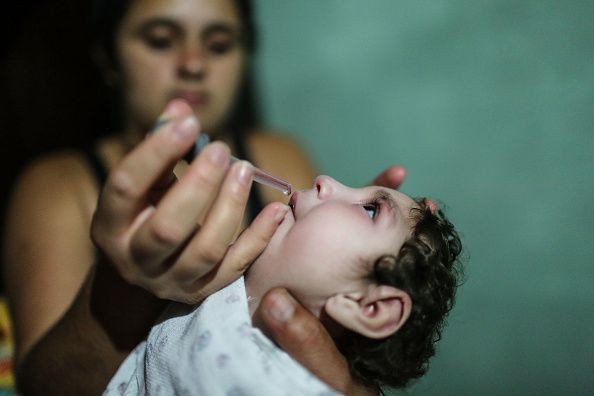Zika Vaccine Latest 2017: This May Be Strongest Candidate Yet For Protecting Women Against Virus

The importance of developing a vaccine against the Zika virus has been elevated since Zika was linked to serious developmental problems in children born to infected mothers. Although there is still no vaccine to protect against the virus, researchers from the National Institutes of Health have found an extremely promising candidate for such a drug.
The vaccine candidate showed rapid and durable protection against Zika in both mice and monkeys, with clinical trials expected to start in 12 to 18 months. According to the study, now published online in Nature, this vaccine candidate differs from a traditional vaccine because it does not contain a live virus. Instead it is mRNA-based. This means it does not have any of the potential health risks of traditional vaccines, such as causing a harmful infection in people with a compromised immune system. What’s more, it may also be less expensive to produce and distribute and possibly much more powerful.
Read: Is There A Cure For Zika? Everything You Need To Know About The Mosquito-Borne Disease
"Our work so far suggests that this new vaccine strategy induces a level of virus neutralization about 25 times greater, after a single dose, than one sees in standard vaccines," senior author Drew Weissman said in a report on Science Daily.
Vaccines cost time and money to develop and manufacture. According to LiveScience, Zika has traditionally been viewed as a minor virus causing mild illness. As a result, scientists did not prioritize creating a vaccine for it, but that changed when it was shown to cause microcephaly, a developmental disorder linked to birth defects and neurological problems in children of infected mothers.
According to a statement released on the study, the current vaccine candidates that show potential against the virus are adenovirus-based. This means rather than containing live versions of a virus, these vaccines give patients immunity using harmless modified adenoviruses. However, these types of vaccines also have the potential to be quickly neutralized by the body’s immune system, rendering the vaccine useless. The new vaccine, which is made using something known as a mRNA-based strategy, does not have the same risk.
Though the findings are exciting, this week the World Health Organization released a report suggesting that a vaccine for Zika virus likely won't be available for women of childbearing age before 2020, The Local reported. According to the statement, although there are about 40 potential vaccines, all of them need further testing before they can be deemed effective and safe enough to be released to the public.
Source: Pardi N, Hogan MJ, Pelc RS, et al. Zika virus protection by a single low-dose nucleoside-modified mRNA vaccination. Nature. 2017
See Also:
Zika vs. West Nile Symptoms 2016: Facts About Mosquito-Borne Virus Infections
A Brief History Of Zika Virus, From Its Discovery In The Zika Forest To The Global Outbreak Today



























